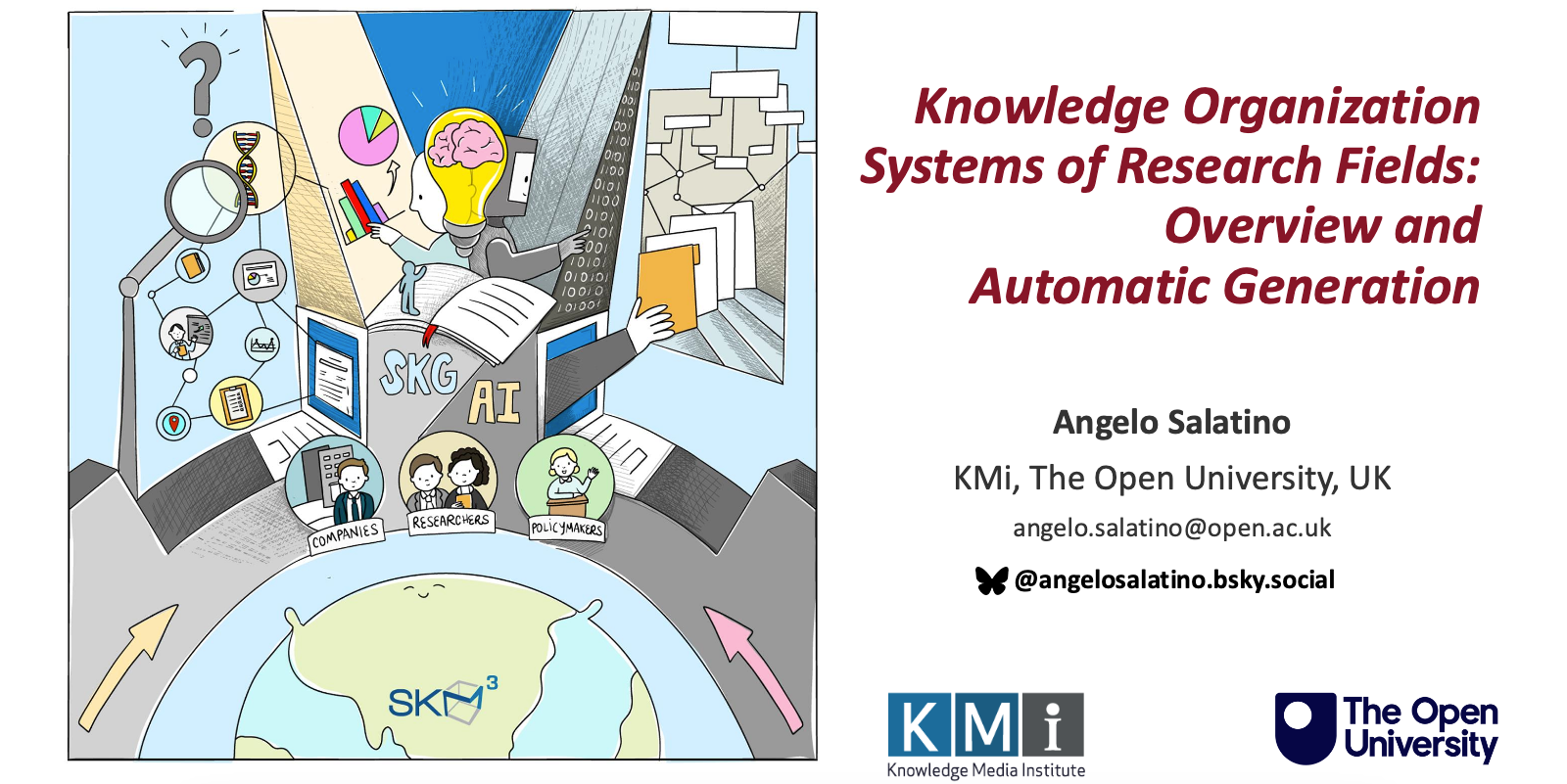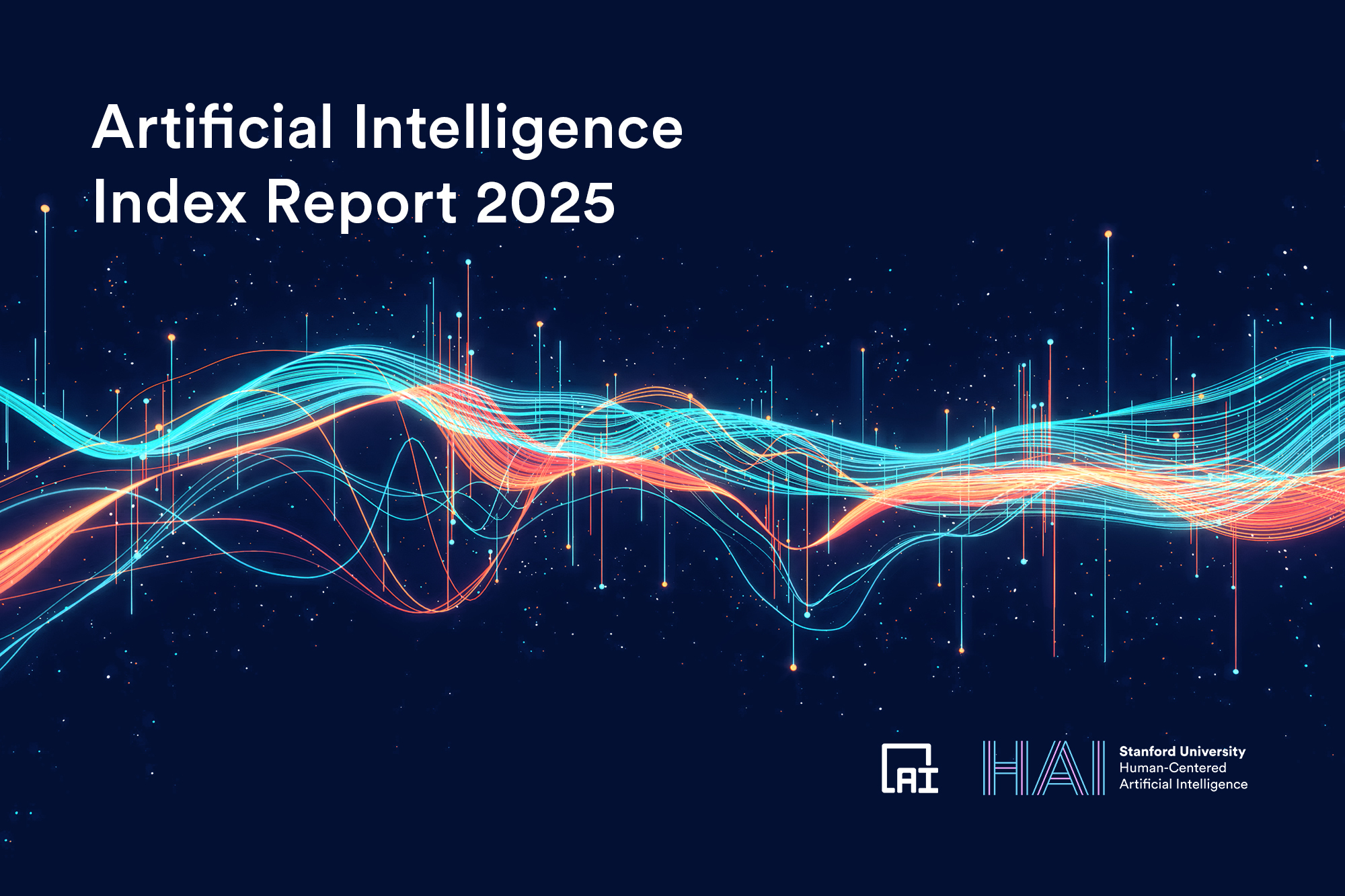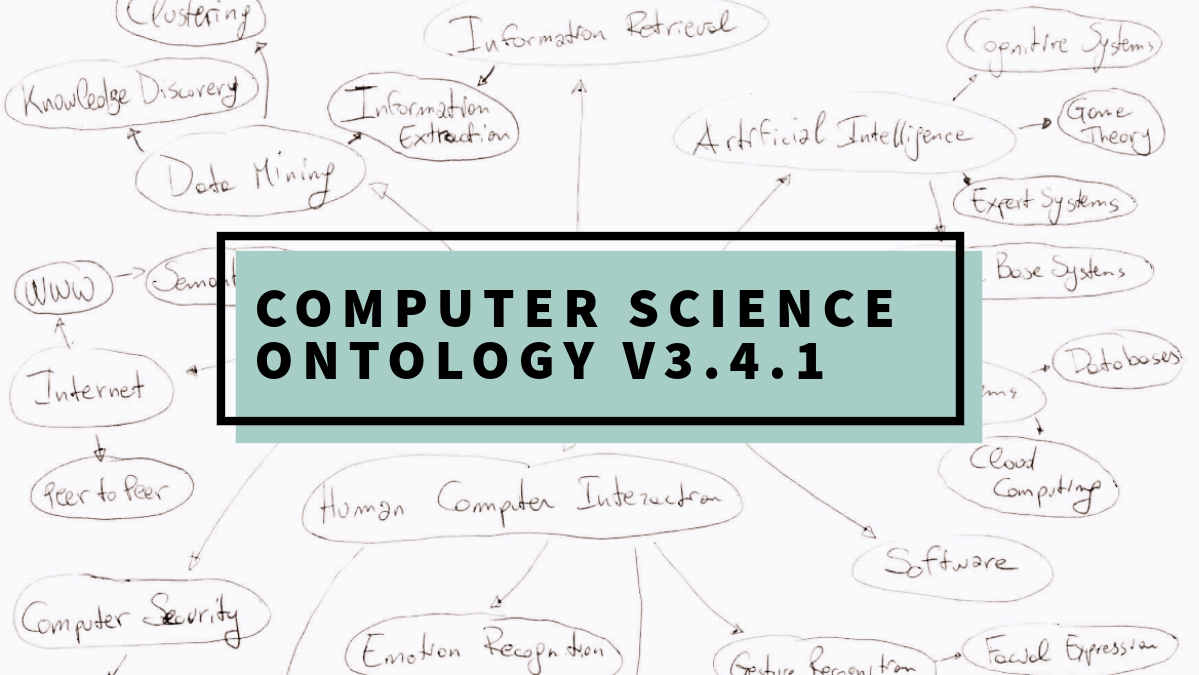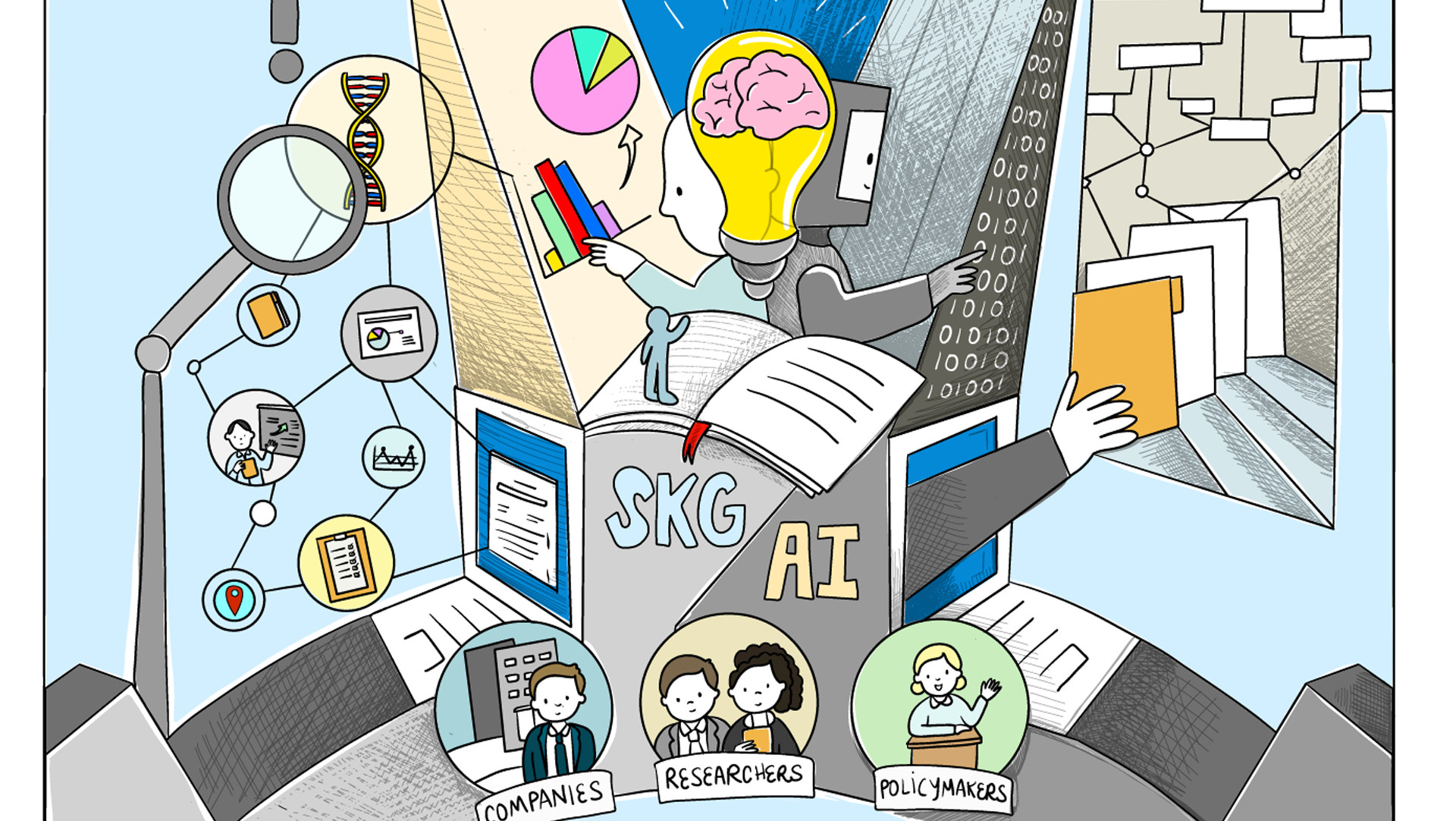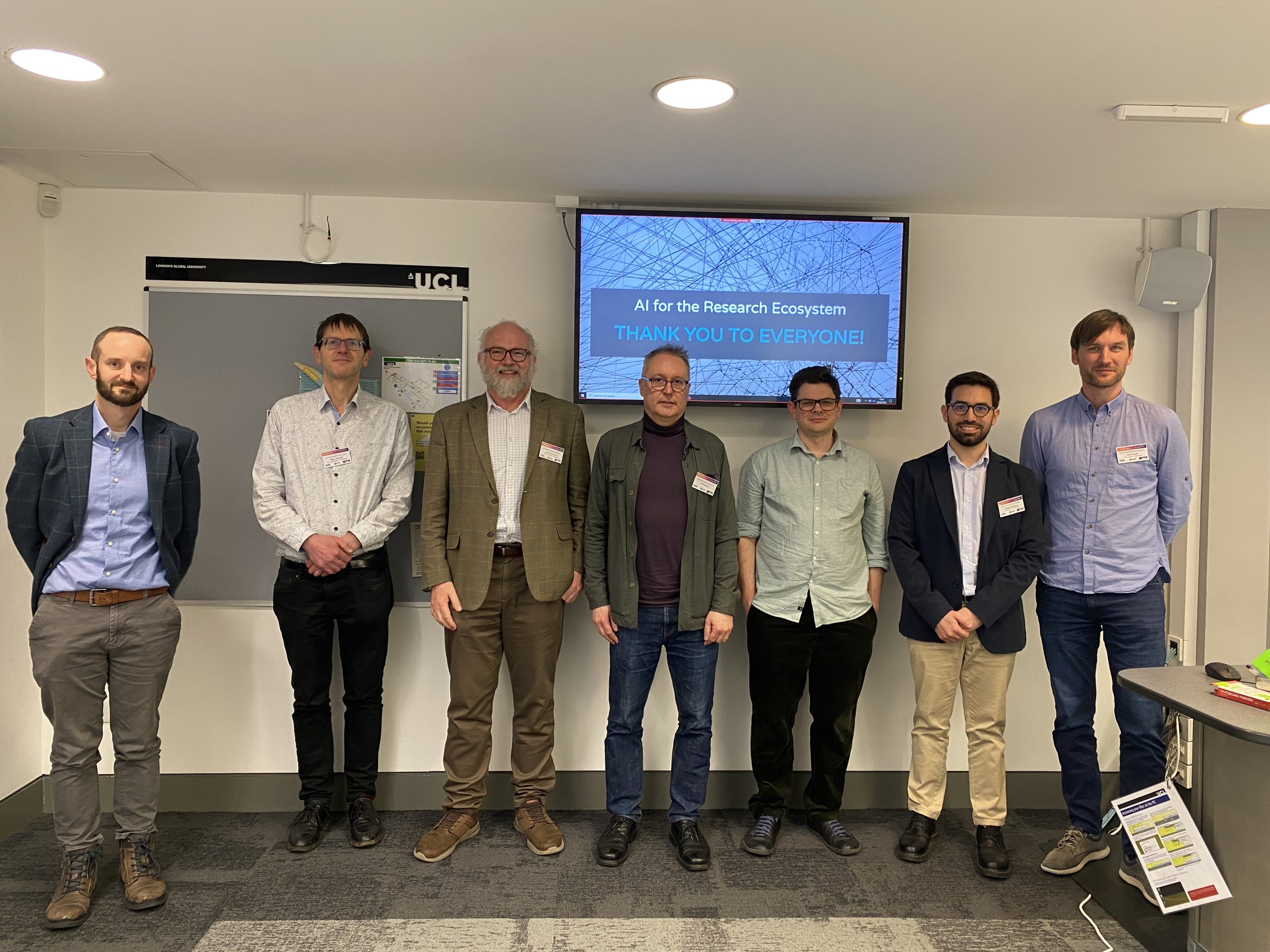
On March 22, 2024, the AI for the Research Ecosystem workshop (#AI4RE) took place in London, kindly hosted by UCL in the wonderful surroundings of Chandler House. The workshop was part of the Turing Institue’s AI UK Fringe series of events which took place around the U.K. The workshop focused on the intersection of the recent developments in Artificial Intelligence, such as Large Language Models and Deep Learning, and how these developments will impact current research practices.
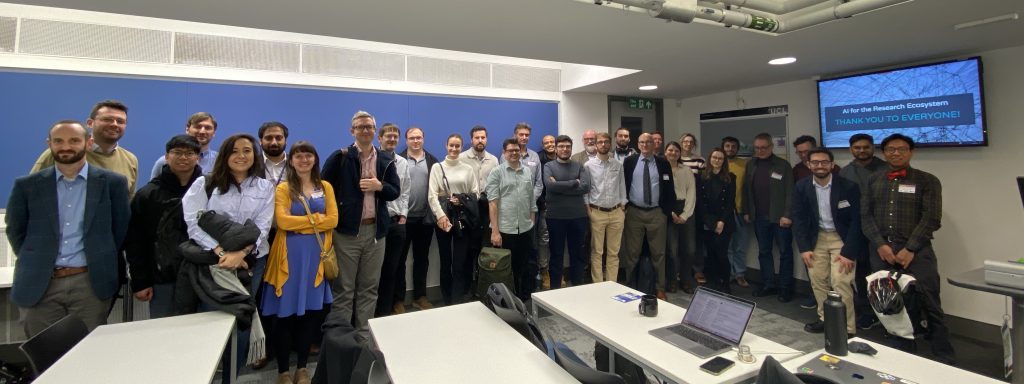
The packed programme opened with a keynote by Prof. David De Roure of the University of Oxford, exploring knowledge infrastructures, social machines and how, and if, we can measure the rate of innovation – and whether it is increasing.
There were two sessions of invited talks featuring a range of impressive speakers from academia and industry. Dr Phil Gooch, from Scholarcy, looked at how AI can help make research more accessible for the widest range of users. Professor Mike Thelwall, University of Sheffield, examined whether using AI in research assessment can be beneficial, and impartial. Simon Porter, VP futures at Digital Science, gave a service provider’s perspective on how they are adapting and adopting these new technologies. Professor Andrew French, University of Nottingham, showed some amazing work their group have been doing for over 20 years using machine learning for identifying the phenotype of plants. He also introduced AIBIO-UK, a community-building project that brings together AI and core bioscience researchers to unravel biological fundamentals and tackle impeding societal challenges.
Professor Petr Knoth, from KMi at the OU, discussed CORE and why AI needs open data and open infrastructures.
The SKM3 team was represented by Dr Angelo Salatino who gave a detailed overview of the team’s research endeavors. In his speech, he showcased Francisco Bolanos’s doctoral work on the AI-powered literature reviews and presented the results of the recent survey on existing tools for automating Systematic Literature Reviews processes. The presentation continued with the ongoing work on hypothesis generation, exploring how Large Language Models can be leveraged to formulate human-readable hypotheses. Subsequently, Dr. Salatino presented his own research on finding the relationship between diversity of expertise in a research team and the attained impact within a five-year timeframe. Finally, he concluded by outlining the team’s latest advancements in scientific question answering, demonstrating the efficacy of low-resource LLMs in achieving high performance.
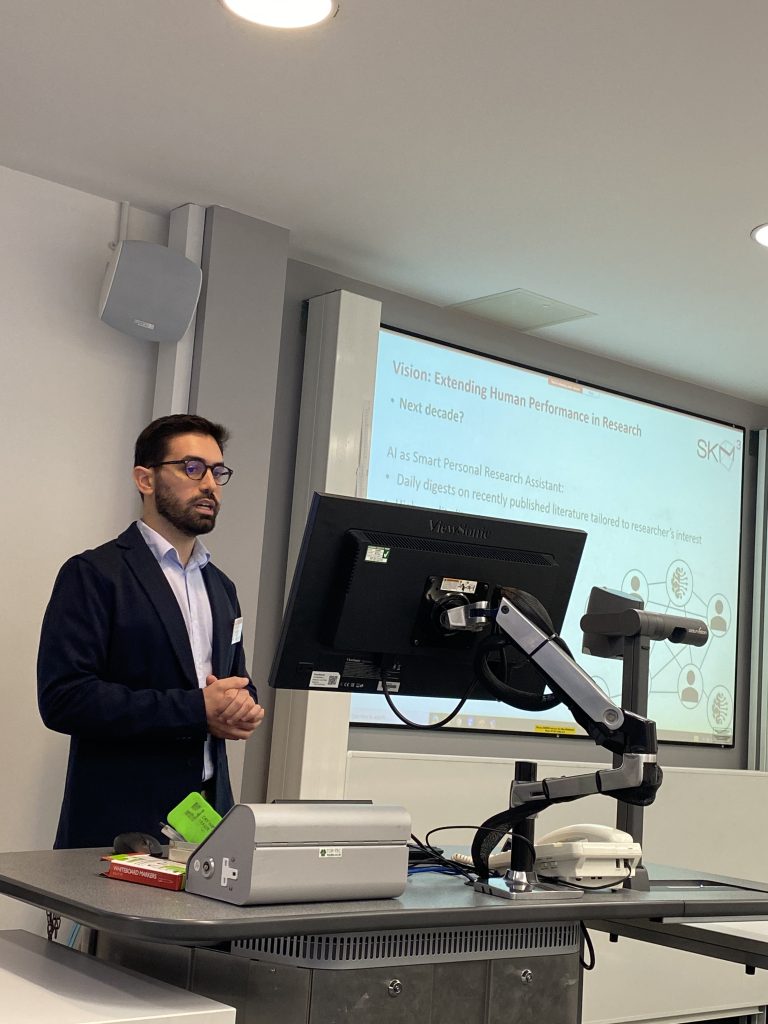
The workshop’s themes address highly relevant issues, attracting significant interest from stakeholders like the European Commission and UK Research and Innovation. Ben Steyn, head of metascience at the Department for Science Innovation and Technology (DSIT) gave an impromptu lightning talk, introducing the combined DSIT / UKRI Metascience unit and presented their efforts in developing a global community of practice for metascience.
There was also a poster session, with 6 accepted posters gathering a crowd during the networking session, and the day rounded off with a wide-ranging panel session where the panellists had a lively discussion on AI’s applications in study design, literature reviews, and data analysis. The panel also covered ethical considerations and the democratisation of AI technologies.

The workshop aimed to foster a collaborative learning community among researchers, institutions, and policymakers and by this measure was a resounding success.
We are extremely grateful to all of the speakers and participants for being a part of the AI4RE workshop. You can view all of the slides and posters from the day on the AI4RE website
